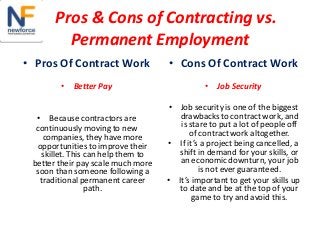
The human resources consulting business arose from management consulting. A HR consultant can fulfill two roles. One is to provide analysis and strategy for HR. The other is to facilitate learning and development. These roles are essential to an organization's ability to succeed. Depending on the company's needs, these consultants may specialize in one or more of these areas.
Human capital consulting
Human capital consulting may be the right career for you if your passion is working with people, and you are looking to make a real difference in the world. Consultants are responsible for helping organizations improve their business practices by creating strategies, training programs, as well as performance management systems. This job requires exceptional communication skills, an understanding of psychology as well as human behavior.
In order to provide clients with an edge in the workplace, human resource consultants must be up-to-date on the latest developments in this field. Businesses are becoming more competitive and global, which means that a flexible workforce is more important than ever. Most companies are always looking for new ways of improving productivity and efficiency. Sometimes, this means changing their working methods.

HR consulting
Human resources consulting emerged from management consulting. This industry focuses on decisions and tasks related HR. An HR consultant typically fills two roles. The first role involves strategic planning, while the second is addressing the operational side of human resources. These consultants offer guidance on managing people, processes, technology.
HR consultancies help businesses maximize HR efficiency by implementing new policies and procedures. Their objective view is valued by companies, and they are often brought in to tackle a particular issue. Their work can range from assessing a deficit in the company's human capital to drafting policy and implementing it. Other roles include helping to drive organisational change and implementing innovative technology. Although multinational companies often hire HR consultancies, they are also used by smaller and more modest companies.
Analytics for HR
An HR analytics consulting firm can help you get the most from your data. This type can help you make informed choices and provide insight into employee behavior. It can also help to eliminate biases or ensure equal opportunities for all applicants. These insights are made from data and can improve hiring processes, reduce hiring time, and identify trends that affect recruitment outcomes.
HR analytics consulting is an emerging field. The rise of AI and automation is driving the growth of this field. As industries and assets merge, it is becoming more important. These changes will lead to a shift in the human capital landscape. As a result, the issues of aging as well as immigration are becoming increasingly important.

Learning & development
A Learning & developmental consultancy HR can help develop the talent in your workforce. L&D professionals can work with your business leaders, executive leadership teams and other stakeholders to identify and implement effective training programs. L&D programs that align with an organisation's goals are flexible, measurable, and adaptable.
Learning and Development consultants generally have a bachelor’s degree. This is typically in a field that deals with learning and/or development. Employers may prefer consultants with a master’s.
FAQ
How did modern consultancy come about?
The first consultants were actually accountants who would help companies manage their finances. Because they were skilled in managing financial information, they became "accounting consulting". This role quickly expanded to include human resource management.
The French word for advice, "consultant", was originally used to describe someone who could advise on the management of an organization. The word consultant is still used by most business owners to refer to any kind professional advisor.
What are the benefits to being a consultant?
Consultants have the ability to choose when and on what they work.
This means that you are able to work from wherever you're at any time.
You can also easily change your mind, without worrying about losing any money.
Finally, your income can be controlled and you can set your own hours.
What happens when the consultant finishes the job?
After the consultant completes their work, he/she will submit a final summary of the results. This report includes project timelines, deliverables, and any other pertinent information.
Next, you will review the report and determine if the consultant has met your expectations. If not, you can either request changes or terminate the contract.
What can I expect from my consultant?
Once you select your consultant, you should expect to hear back from them within a few days. They will typically ask for information about the company, such as its mission, goals. products and services. budget. They will then send you a proposal that outlines the scope of work and estimates timeframe, fees, deliverables, milestones and other details.
If all goes well, the parties will then negotiate a written agreement. The terms of the contract will depend on the type of relationship between the two parties (e.g., employer-employee, employer-independent contractor).
If all goes well, the consultant will start working immediately. You will have access both to your documents and internal resources and the consultant's skills and knowledge.
You shouldn't assume, however, that every consultant is an expert in all areas. To become an expert in any field you consult, it takes practice and effort. Your consultant should not assume that they know everything about you business.
How much do consultants make?
While some consultants make $100k+ per year, most consultants only earn between $25-$50k. An average consultant salary is $39,000 This includes both hourly and salaried consultant.
Salary depends on the experience of the consultant, their location, industry, type and length of the contract (contractor or employee), as well as whether they have their own office or work remotely.
How do I set up an LLC to consult?
The first step is to decide what service provider you want to be. Next, you must ensure that you are qualified to provide those services. It might also help to find someone who already does what you want to offer and see how they operate.
Once you have a clear idea of what you are offering, you can start to identify your target market. If they don't exist, you might have to make them.
Next, you will need to decide if you want to start your own business or hire others.
Another option is to get a state license. This requires a lot of paperwork and legal fees.
Statistics
- My 10 years of experience and 6-step program have helped over 20 clients boost their sales by an average of 33% in 6 months. (consultingsuccess.com)
- Over 50% of consultants get their first consulting client through a referral from their network. (consultingsuccess.com)
- On average, your program increases the sales team's performance by 33%. (consultingsuccess.com)
- According to statistics from the ONS, the UK has around 300,000 consultants, of which around 63,000 professionals work as management consultants. (consultancy.uk)
- WHY choose me: Why your ideal client should choose you (ex: 10 years of experience and 6-week program has helped over 20 clients boost their sales by an average of 33% in 6 months). (consultingsuccess.com)
External Links
How To
How To Start A Consultancy Company, And What Should I Do First?
Start a Consulting Company to make some extra money from home. It doesn't require any prior business experience nor capital. You can start your own consulting firm by building a website. After you have built a website, social media platforms such Instagram, Pinterest and LinkedIn will be useful to spread the word about your services.
These tools allow you to make a marketing program that includes the following:
-
Writing content (blogs).
-
Establishing relationships (contacts).
-
Generating Leads (lead generation forms).
-
Selling products (eCommerce websites)
Once you've developed your marketing strategy, you'll need to find clients who will pay for your services. Some prefer to connect with people through networking events. Others prefer to use online resources like Craigslist and Kijiji. It's up to you to make the decision.
Once you have secured new clients, you will need to discuss terms with them and their payment options. These could be hourly fees, retainer arrangements, flat-fee contracts, or other types of fees. It is important to clearly communicate with clients before you accept them as clients.
An hourly contract is the most popular type of contract for consulting services. In this case, you agree to provide certain services at a fixed rate each month or week. You might be able, depending on which service you offer, to negotiate a discount. You must fully understand the contract you're signing before you agree to it.
The next step is to create invoices and send them to your clients. Invoicing can be a complicated task until you actually attempt it. You have many options to invoice your clients. For example, some people prefer to have their invoices emailed directly to their clients, while others print hard copies and mail them. Whatever your preferred method, make sure it works well for you.
Once you have created invoices, it is time to collect the payments. PayPal is preferred by most because it is easy-to-use and offers multiple payment options. However, other payment processors are available, including Stripe, Square Cash, Google Wallet, Apple Pay, Venmo, etc.
Once you're ready to begin collecting payments, you'll want to set up bank accounts. You can track income and expenses separately by having separate savings and checking accounts. You can also set up automatic bank transfers to pay bills.
It can seem daunting to start a consulting business. But once you understand how it works, it becomes second nature. For more information on starting a consultancy business, check out our blog post here.
Starting a consulting firm is a great way to earn extra cash without worrying about employees. Consultants can work remotely so they don't have the hassle of dealing with office politics and long working hours. Remote employees have more flexibility because they are not bound by regular work hours.